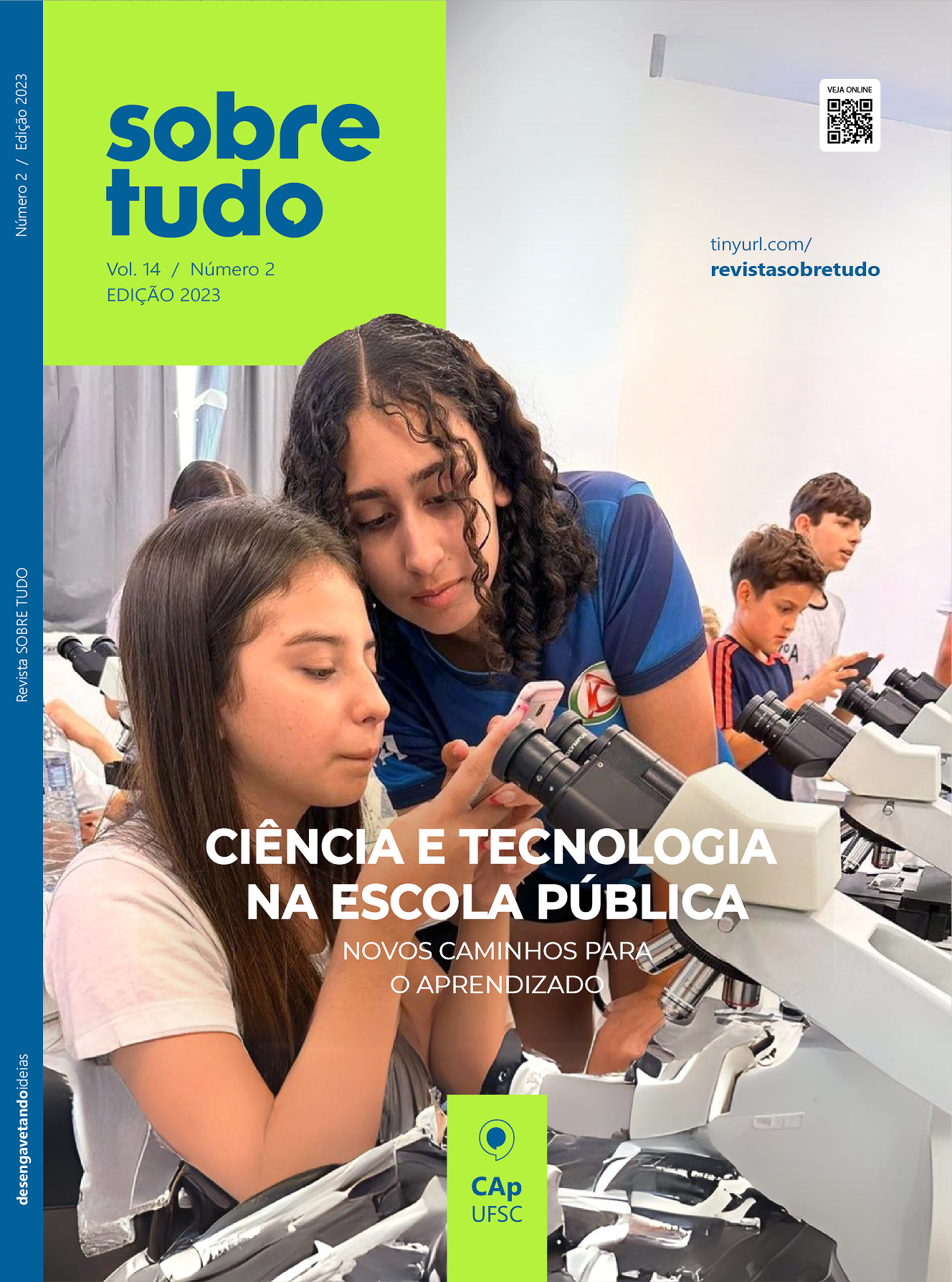A EPISTEMOLOGIA DA GAMIFICAÇÃO E SEUS DESAFIOS PARA A EDUCAÇÃO
Palavras-chave:
Ensino-Aprendizagem, Epistemologia, Educação, Gamificação, Abordagens pedagógicasResumo
A gamificação na educação é uma tendência crescente que utiliza elementos e mecânicas de jogos para envolver os estudantes e tornar o processo de aprendizado mais dinâmico e interativo. No entanto, seu uso também apresenta desafios epistemológicos relacionados à validação e construção do conhecimento. As questões epistemológicas desempenham um papel crucial ao estabelecer critérios para fundamentar as estratégias de gamificação na educação, justificando o caminho adotado para promover a aprendizagem dos estudantes. Este artigo tem como objetivo analisar a epistemologia da gamificação e seus desafios para a educação, abordando o histórico da gamificação, sua relação com a epistemologia e os principais desafios enfrentados. Também serão fornecidos exemplos de aplicação da gamificação em diferentes áreas educacionais e soluções para superar os desafios epistemológicos. Conclui-se que a gamificação pode ser uma abordagem promissora para a educação, desde que seja utilizada de maneira consciente e crítica, levando em consideração as implicações epistemológicas envolvidas.
Referências
AFLITOS, Ozanira Lima dos et al. Khan Academy-uma ferramenta gamificada em ensino e aprendizagem de matemática. Revista Areté, 2018.
ALVES, F. Gamification como criar experiências de aprendizagem engajadoras um guia completo: do conceito à prática. 2ª. ed. São Paulo: DVS, 2015.
ANDRADE, S. T. Os Antecedentes Da Gamificação E Suas Influências: Um Estudo Por Meio Das Equações Estruturais. Tcc - Faculdade De Tecnologia E Ciências Sociais Aplicadas -Fatec, 2016. Acesso em: 23 maio 2023.
BEZERRA, C. DE L.; LIMA, D. DE J. Kahoot: uma ferramenta didático-pedagógica para o ensino de educação ambiental. Revista Encantar, v. 2, p. 01–12, 10 jul. 2020.
CAPPELLARI, A. F. A percepção de alunos e do professor sobre o uso do aplicativo Duolingo na aprendizagem de inglês como segunda língua. Dissertação - Universidade do vale do rio dos sinos, 2020. Disponivel em: <http://www.repositorio.jesuita.org.br/handle/UNISINOS/9118>. Acesso em: 22 jun 2023.
CARDOSO, O. A. D. O. Reflexo epistemológico no desenvolvimento do planejamento da gamificação no contexto educacional. Universidade Federal de Alagoas - Dissertação do Programa de Pós-Graduação em Educação, 2021. Disponivel em: <http://www.repositorio.ufal.br/jspui/ handle/123456789/8942>. Acesso em: 22 jun 2023.
Cezar, Júlio Rosa da Silva; DE OLIVEIRA, Erica Rodrigues; BARBOSA, Glívia A. Rodrigues. Caracterização de Estratégias de Gamificação em Aplicativos Móveis Educacionais: Um Estudo de Caso do Aplicativo Duolingo. XIV IHC, 2015.
CHURKIN, O. M. Gameficação na Educação - O Quizz Socrative como processo maiêutico nos logradouros soteropolitanos. Plurais - Revista Multidisciplinar, v. 2, n. 3, p. 78–88, 22 dez. 2017.
CLASSCRAFT. Classcraft - All-in-One Plataforma de Gamificação da Educação. Disponível em: <https://www.classcraft.com/pt/>. Acesso em: 22 set. 2023.
CLEOPHAS, M. D. G. Integração Entre A Gamificação E A Abordagem Steam No Ensino De Química. REVASF, Petrolina, 10, n. 23, dezembro 2020. 78-100.
DE QUADROS, G. B. Construindo O Estado Da Arte Da Gamificação. Anais do Encontro Virtual de Documentação em Software Livre e Congresso Internacional de Linguagem e Tecnologia Online, 4, n. 1, 2016. 1-6. Disponivel em: <http://www.periodicos.letras.ufmg.br/ index.php/anais_linguagem_tecnologia/article/view/8446/7485>. Acesso em: 23 maio 2023.
DETERDING, et al. From game design elements to gamefulness: defining "gamification". Proceedings of the 15th International Academic MindTrek Conference, 2011. 9-15.
DICHEVA, et al. Gamification in education: a systematic mapping study. Journal of Educational Technology & Society, 18, n. 3, 2015. 75.
DORLING, A.; MCCAFFERY, F. Software Process Improvement and Capability Determination. SPICE, 290, 2012. 295- 301.
FUNDAÇAO LEMANN. Edital para seleção de redes parceiras em 2016. Disponível em: <http://www.google.com.br/?gws_rd=ssl#q=edital+ fundação+lemann>. Acesso em 22 de set. 2023.
GARCIA, Gamificação como prática pedagógica docente no processo ensino e aprendizagem na temática da inclusão social. Dissertação - Universidade Tecnológica Federal do Paraná, 2015. Disponivel em: <http://repositorio.utfpr.edu.br/jspui/handle/1/1666>. Acesso em: 23 maio 2023.
GAZOTTI-VALLIM; GOMES, S.; FISCHER. VIVENCIANDO INGLÊS COM KAHOOT. The ESPecialist, 38(1), 2017.
GIL, Antonio Carlos. Como elaborar projetos de pesquisa. 4. Ed. São Paulo: Atlas, 2002
GOMES, G. S.; MOTA, M. V.. Metodologias Ativas na Prática Docente. CEAD -Coordenadoria de Educação Aberta, 2021.
KAPP, K. M. The Gamification of Learning and Instruction: Game-based Methods and Strategies for Training and Education. [S.l.]: Pfeiffer, 2012.
KAPP, K. M.; BLAIR, L.; MESH, R. The Gamification of Learning And Instruction Fieldbook. [S.l.]: Wiley, 2014.
KUUTTI, J. DESIGNING GAMIFICATIO. Dissertação (master’s in business administration) –University of Oulo, Oulo, 2013. Disponivel em: <http://jultika.oulu.fi/files/nbnfioulu-201306061526.pdf>. Acesso em: 23 maio 2023.
MARTINS, C.; GIRAFFA, L. M. M. Gamificação nas práticas pedagógicas: teorias, modelo e. Education, 4, 2015. 42-53.
MARTINS, O.; MASCHIO, C. F. As tecnologias digitais na escola e a formação docente:representações, apropriações e práticas. Revista Actualidades Investigativas en Educación, 14, 2014.
MCGONIGAL, J. Reality Is Broken: Why Games Make Us Better and How They Can Change the World. Nova Iorque: The Penguin Press, 2012.
MORA, et al. Uma revisão bibliográfica de frameworks de design de gamificação. 2015 7th International Conference on Games and Virtual Worlds for Serious Applications (VS-Games), 2015. 1-8.
MORAN, J. Como transformar nossas escolas. [S.l.]: [s.n.], 2017.
OLIVEIRA, J. K. C. D.; PIMENTEL, F. S.. Epistemologias Da Gamificação Na Educação: Teorias De Aprendizagem Em Evidência. Revista da FAEEBA: Educação e Contemporaneidade, 29, n. 57, 2020. 236-250.
PAVIANI, J. Epistemologia prática: ensino e conhecimento científico. Caxias do Sul: Educs, 2009.
SENA, Gamificação: Estratégia De Ensino E Aprendizagem Em Currículo Por Competências. Revista de Ensino em Artes, Moda e Design, Florianopolis, 3, n. 2, 2019. 25-40.
SILVA, C. D. J. F. D.; RÊGO, E. O.; SILVA, L. B. D. Gamificação: uma Proposta de Aplicação da Plataforma Classcraft nas Aulas de Jogos Educativos do IFPI - Campus Teresina Zona Sul. Anais do IV Seminário de Educação a Distância da Região Centro-Oeste (SEAD-CO 2022). Anais... Em: SEMINÁRIO DE EDUCAÇÃO A DISTÂNCIA DA REGIÃO CENTRO-OESTE. Brasil: Sociedade Brasileira de Computação, 9 maio 2022. Disponível em: <https://sol.sbc.org.br/index.php/seadco/ article/view/20399>. Acesso em: 22 set. 2023
TESSER, G. J. Principais linhas epistemológicas contemporâneas. Educar, Curitiba, n. 10, 1995. 91-98.
WERBACH; HUNTER. For the Win: How Game Thinking Can Revolutionize You. Wharton digital press, Philadelphia, 2012.
WU, M. Gamification from a Company of Pro Gamers. Retrieved April, 15, 2011. Disponível em: <https://community.khoros.com/t5/>. Acesso em: 23 maio 2023.


